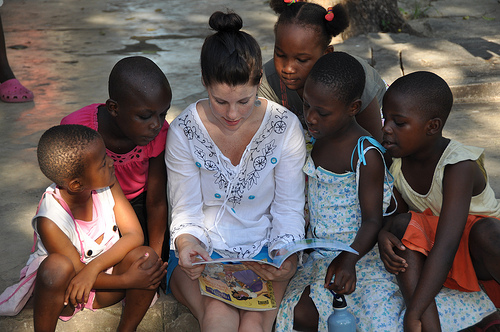By Tanya Ruscheinski (Contributor) – Email
Print Edition: November 9, 2011
Students interested in making a difference internationally while simultaneously earning UFV credits have the opportunity this summer to do just that.
Six funded UFV interns will travel to Tanzania, Africa this May through UFV’s Global Development Institute and spend 90 days taking courses on informal settlements at Ardhi University. Outside of their classes, interns will make a positive impact in the area through various outlets and return to UFV with internship credits.
Cherie Enns, geography professor at UFV and Tanzania field coordinator, applied for and received funding for the project through the Canadian International Development Agency and the Students for Development Program. The whole internship project involves sending 16 funded UFV students to Africa over four years, as well as bringing four Tanzanian PhD students here, two of whom are potentially arriving in January of 2012.
According to Enns, student internships to Africa are a fairly new opportunity at UFV. “I grew up in Africa,” said Enns, “and I’ve been doing projects in Africa for a long time, but we first started sending interns with funding to Africa about four years ago.”
While there are only six funded internships available for the coming May project, unfunded internship opportunities are also available to students. According to Enns, the unfunded internships will incorporate students working with a variety of organizations, and can include anything from aspects of social media to ground applications to research. “They could [also] work with a children’s centre,” said Enns, “and doing more sort of hands on applied interactions.”
The benefits of participating in projects like the Tanzania internship are numerous. “It strengthens your resume to show you’ve had this international applied experience,” said Enns. Not only that – it gives students the ability to make a difference across the globe and it “opens [their] eyes to global international issues.”
Gary Fehr, director of the Global Development Institute, emphasized the diversity of backgrounds students can come from to contribute to the internship. “Some are coming with business skills so they can create sustainable economic opportunities” said Fehr. “Some students are coming with skills so they can do mapping… and some are working on trying to create environmental awareness.”
The impact of these efforts on the community is also very real, Fehr pointed out. “It does help… It sometimes provides skilled support, other times it’s support encouraging people… to be proactive.” He noted, however, that possibly the biggest impact of the internship is the opportunity for students to be able to practically apply and understand what they have been learning in class, and to begin the process of developing cross-cultural networks that can open doors for the future.
In order to apply for the internship, students need to send in a resume and cover letter to either Enns or Fehr. While the application deadline for two January internships is already over, the application process for the six funded internships in May is still open, and will finish around the end of November.
Students interested in applying are also encouraged to attend the information sessions on November 14 at noon in the Building A Geography Lab, and on November 17 at 5:00 p.m. in room A416.



